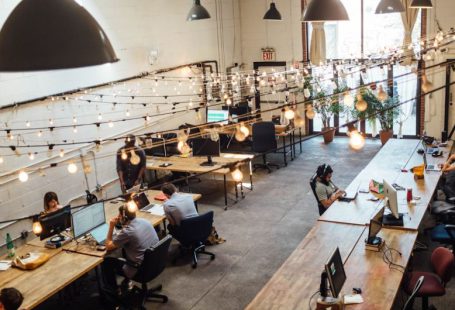In today’s rapidly urbanizing world, the concept of smart cities has gained significant traction as a means to address the challenges of urbanization efficiently. Smart city solutions encompass a wide array of technologies and innovations aimed at improving the quality of life for residents, enhancing sustainability, and increasing the overall efficiency of urban operations. Startups have been at the forefront of developing innovative solutions to tackle urban challenges, driving the transformation of cities into smart, connected hubs of the future.
Empowering Urban Mobility
One of the key areas where startups are making a significant impact is in urban mobility. With the rise of congestion and pollution in cities, there is a growing need for sustainable and efficient transportation solutions. Startups are developing technologies such as ride-sharing platforms, electric scooters, and autonomous vehicles to revolutionize the way people move around urban areas. These innovations not only reduce traffic congestion but also contribute to lower carbon emissions, making cities cleaner and more livable.
Enhancing Safety and Security
Safety and security are paramount concerns in urban environments, and startups are leveraging technology to address these challenges effectively. From smart surveillance systems and predictive policing algorithms to emergency response apps, startups are developing innovative solutions to make cities safer for residents and visitors alike. These technologies not only help law enforcement agencies in crime prevention and investigation but also empower citizens to take proactive measures to ensure their safety.
Improving Energy Efficiency
Energy consumption is a significant issue in cities, with buildings and infrastructure accounting for a large portion of total energy usage. Startups are developing smart energy solutions that enable more efficient use of resources, reduce waste, and lower costs for both residents and businesses. Technologies such as smart grids, energy management systems, and IoT-enabled devices are helping cities optimize their energy consumption and move towards a more sustainable future.
Enhancing Citizen Engagement
Citizen engagement is crucial for the success of smart city initiatives, as residents play a vital role in shaping the future of their communities. Startups are developing platforms and tools that facilitate communication between citizens and local governments, enabling more transparent and participatory decision-making processes. By fostering greater engagement and collaboration, these technologies help create a sense of ownership and pride among residents, leading to more sustainable and inclusive urban development.
Optimizing Waste Management
Waste management is a pressing issue in cities, with growing populations generating increasing amounts of waste that pose environmental and health risks. Startups are developing innovative solutions to optimize waste collection, recycling, and disposal processes, making cities cleaner and more sustainable. Technologies such as smart bins, waste tracking systems, and waste-to-energy solutions are revolutionizing the way cities manage their waste, reducing landfill usage and promoting a circular economy.
Driving Economic Growth
Smart city solutions not only benefit residents and the environment but also drive economic growth by creating new opportunities for businesses and entrepreneurs. Startups that develop and implement innovative technologies in urban areas stimulate job creation, attract investment, and fuel economic development. By fostering a culture of innovation and entrepreneurship, smart cities become hubs of creativity and prosperity, attracting talent and resources that contribute to long-term sustainable growth.
Innovating for the Future
As cities continue to grow and evolve, the role of startups in developing smart city solutions becomes increasingly vital. By harnessing the power of technology and innovation, startups are driving the transformation of urban areas into smart, connected ecosystems that are more sustainable, efficient, and livable. With a focus on empowering urban mobility, enhancing safety and security, improving energy efficiency, fostering citizen engagement, optimizing waste management, and driving economic growth, startups are at the forefront of shaping the cities of the future.





